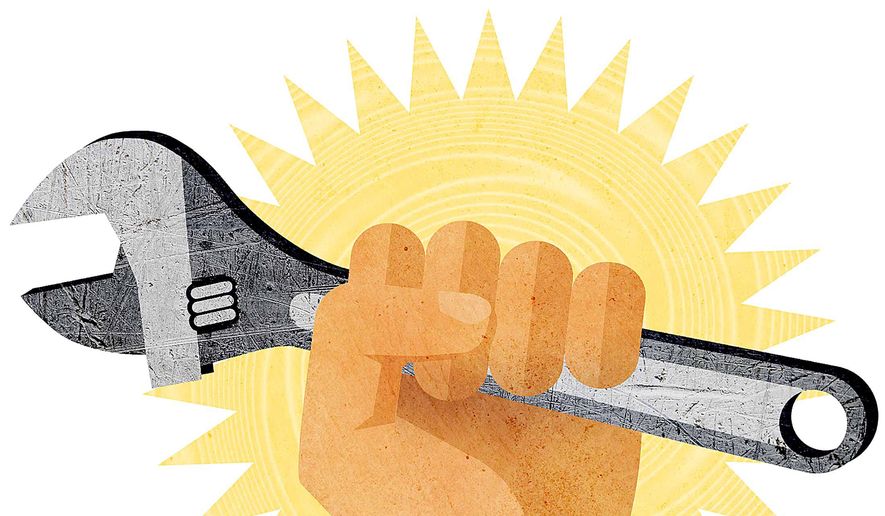OPINION:
Donald Trump’s first full month in the White House has already had a positive impact on the jobs situation. According to figures the Commerce Department released Friday, the private sector added 151,000 jobs in February, while the federal government shed 10,000 positions.
It’s too early for the administration’s policies to have had much impact. The broader economic indicators haven’t budged. As Kevin Hassett, the president’s economic adviser, noted, last month’s improvements were anticipatory.
Business leaders adjusted operations after realizing the president was serious about shifting priorities. “We’re going to have high-paying manufacturing jobs as opposed to government jobs. We have too many people in government. You can’t just do that. … They just hire more and more people,” Mr. Trump said in an Oval Office press conference.
The previous administration’s focus was expanding the ranks of the bureaucracy. President Biden’s economic team knew it could cover up weakness in the underlying economy with a surge in federal hiring and spending.
What better way to address lagging employment numbers than adding swarms of IRS auditors to harass taxpayers and eat out their substance? During his four years in office, Mr. Biden’s team expanded the public payroll by 133,400. Mr. Trump is already on track to let those newly recruited officials find more productive employment elsewhere.
Thanks to Congress’ fiscally reckless baseline budgeting practice, it’s just as simple to fudge the gross domestic product figure. During the COVID-19 crisis, we spent $2 trillion on what was supposed to be an emergency, one-time response — except there’s no such thing as a one-time expense on Capitol Hill. The 2020 splurge has been repeated every year since.
Economists count every dollar Uncle Sam spends as economic growth, so raiding taxpayer wallets for that extra $2 trillion makes the economy look healthier than it is — on paper.
Government spending does nothing to increase the amounts of goods and services in the economy. That’s wealth that isn’t just on paper. Appearing on Fox News, Commerce Secretary Howard Lutnick floated the idea of fixing the statistics by counting only the private sector’s contribution toward growth.
“The government has historically messed with GDP,” Mr. Lutnick said. “It goes like this: If the government buys a tank, that’s GDP. But paying 1,000 people to think about buying a tank is not GDP. That is wasted money.”
Although the jobs situation is positive, markets remain jittery about trade. Mr. Trump is imposing tariffs on our major trading partners, hoping to persuade corporations to move factories back to the United States. Once the import duties were about to take effect for Canada and Mexico, the stock market dived.
The administration demonstrated flexibility by adjusting the import duties so as not to affect U.S. automakers that rely on parts made overseas. That won’t satisfy the industrial giants who built their business around outsourcing. “Globalists won’t love this because we’re bringing jobs back to America. … I think the United States is going to do record business,” Mr. Trump said.
The administration showed more concern for the little guy. Earlier this month, the Treasury suspended obnoxious “beneficial ownership” reporting requirements that would have forced small-business owners to spend more time filling out useless forms than serving customers.
Combining these moves with the newly approved federal permits will boost the supply of new oil and gas, and the policies that drove malaise under Mr. Biden will be gone. America is on track to replace paper prosperity with real prosperity.




Please read our comment policy before commenting.